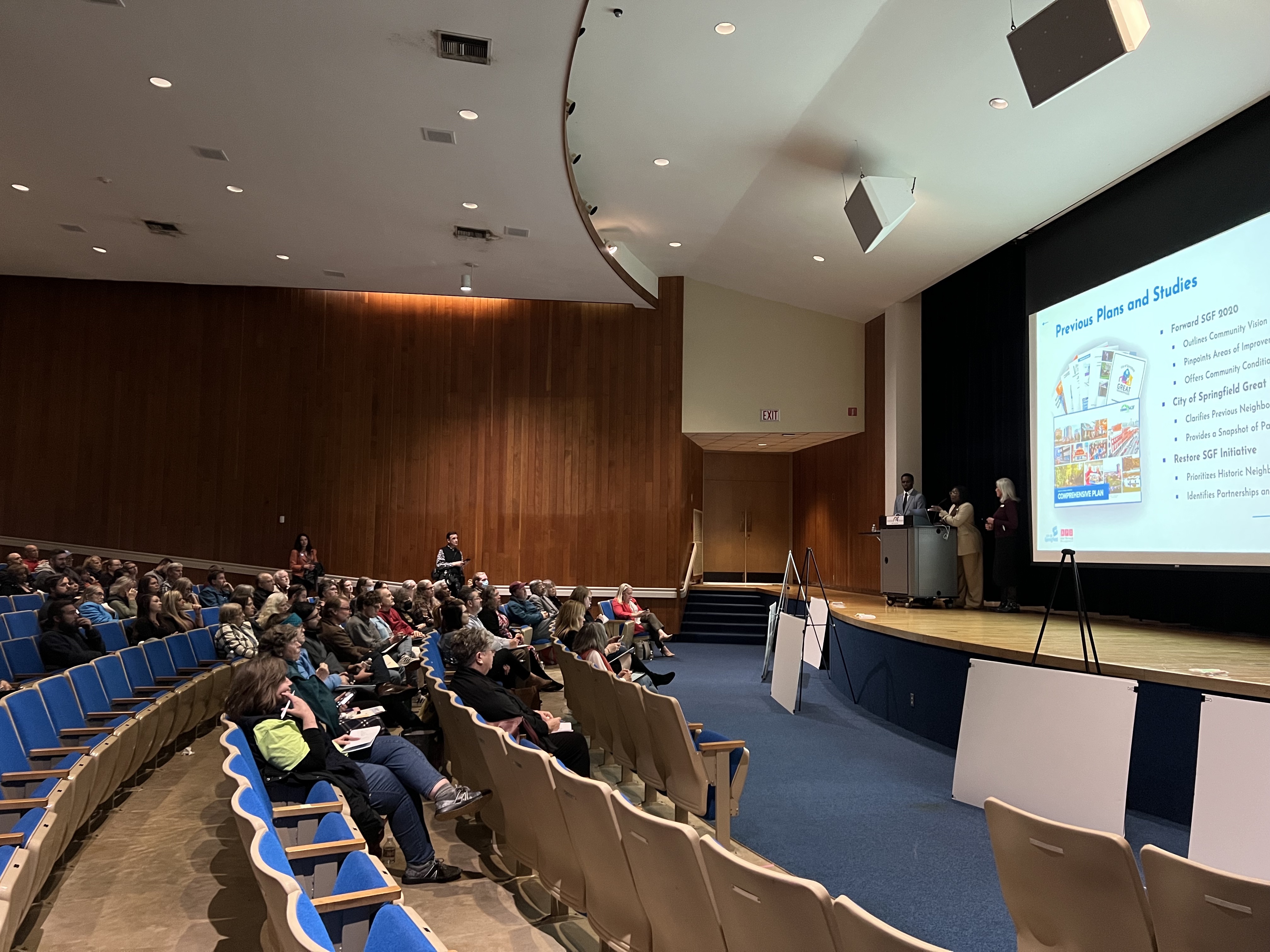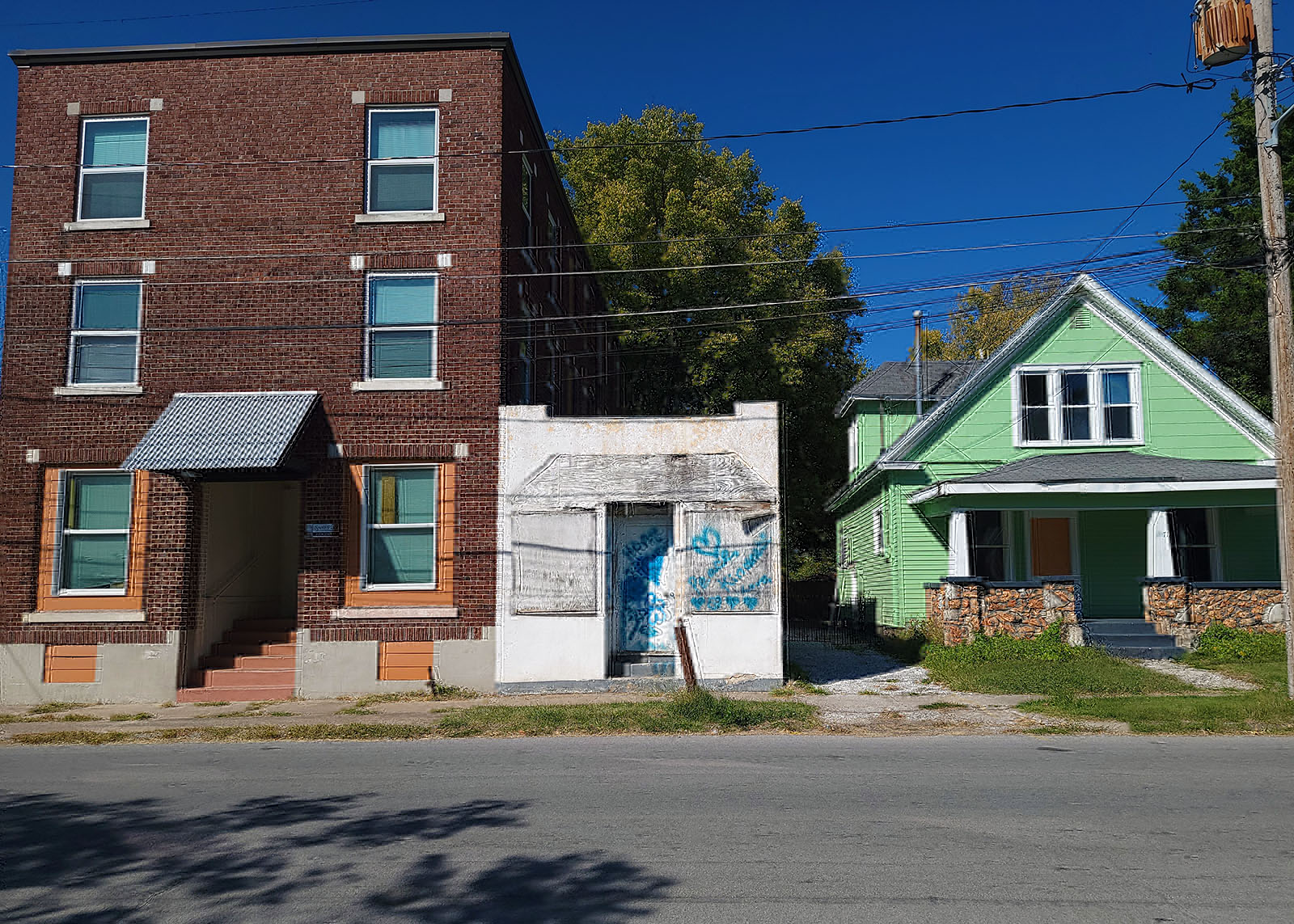Springfield has housing problems. But exactly what they are and how they can be addressed has left the city looking for outside help.
In November 2022, the City of Springfield selected Atlanta-based firm APD Urban Planning and Management to conduct a comprehensive housing study across the city.
The nearly year-long study will produce a report in October that will provide recommendations and strategies to help revitalize Springfield neighborhoods and identify ways to improve the city’s housing stock through policy and code changes.
Brendan Greisemer, the assistant director of planning and development for the City of Springfield, said that these recommendations will help them identify “where we prioritize the city’s limited resources.”
APD identifies Springfield’s housing problems street by street
APD’s study is currently in the data collection phase, which has included a windshield survey that took them through neighborhood streets across Springfield, capturing images with a 360-degree camera and recording information on housing conditions, vacancies and other details relevant to the study.
After the survey, they score houses and neighborhoods based on the condition of buildings, by looking at the roof, the windows, the siding or other aspects of properties.
“[This gives us] a better idea, or we have an idea based on data, which neighborhoods have the most distressed or problem properties that need help, which neighborhoods have the highest number of houses that are in good condition,” Deborah Jensen, the senior planning project manager for APD, told the Daily Citizen.

Community input plays vital role in housing study
APD introduced themselves to the community at a meeting on Feb. 23 at the Springfield Art Museum and used it as an opportunity to begin collecting public input. They will host follow-up meetings in June and September.
Community engagement is a major aspect of APD’s analysis and strategy. The city also wanted to continue that model after public participation in the Forward SGF Comprehensive Plan, which was adopted in November 2022 to help guide the city through the next 20 years.
“It’s so key because you can look at the data, and that will tell you a story, but by listening to the residents and how they experience their neighborhood and how they experience the housing that they live in and their perceptions, that can tell another story,” Greisemer said.
At the Feb. 23 meeting, roughly 100 residents had the opportunity to share their experiences and concerns with Springfield’s neighborhoods. Either over the internet or on poster boards placed near the stage of the Art Museum’s auditorium, attendees could share what type of housing they would like to see more of in Springfield and what kinds of businesses they want in their neighborhoods, among other components of the study.
At the upcoming meetings, residents will have more opportunities to weigh in on APD’s findings.
“We listen to the community, make sure we're understanding what their perceptions are, and then see how those dovetail with the city or the client and the steering or advisory committee,” Jensen said.
Although the $256,000 price tag is being covered by the city, the study will also aid the efforts of Restore SGF, a nonprofit community initiative aimed at restoring and repairing housing while improving homeownership, which is also represented on the steering committee, according to Greisemer.
Both the city and the steering committee are overseeing and providing resources to APD over the course of their study.

APD boasts an accomplished portfolio, multi-disciplined team
APD, founded in 1990 in Jacksonville before moving up to Atlanta, has worked in cities across the country in various capacities, some of which saw them zero-in on distressed neighborhoods rather than an entire municipality.
While they have led major revitalization projects in the likes of Atlanta, Houston and Cincinnati, Jensen said the Springfield study is the most comprehensive one they’ve ever done.
According to Jensen, the majority of the recommendations they provide communities at the end of their studies have been implemented, and APD has occasionally been involved in that process as well.
In an area they worked on in west Atlanta, they helped the foundation overseeing the implementation with property acquisition, redevelopment and the challenge of avoiding displacing “legacy” residents in the historic neighborhood.
In their recommendations to the city, APD will again gauge displacement risks amid their assessment of the residential market and development capacity of Springfield.
With a staff comprised of real estate development professionals, market analysts and urban planners and designers, they have the skillset, expertise and time to collect and analyze data that cities and community stakeholders don’t always have.
“We have a fairly lean planning department,” Greisemer said. “And so taking on a city wide study of this nature is well beyond the capacity that our staff can handle.”

Housing conditions, low homeownership key concerns for Springfield
Of the data they were provided by the city and some of the preliminary information they have gathered, APD has identified poor housing conditions as a result of “problem property owners” and Springfield’s low homeownership rate as some of the key concerns.
Nearly 60 percent of Springfield residents live in a rental housing unit, with 42.9 percent in owner-occupied housing, according to Census data from 2017-2021. Differing numbers suggest that gap has widened since the pandemic.
“What we’d like to see is a rental to ownership rate that’s about fifty-fifty at the most,” Jensen said. “That ensures a stable neighborhood. When it starts slipping into 60 percent rental properties, then we can start seeing some issues arise such as problem property owners that don’t maintain their properties, or maybe substandard housing.”
Part of APD’s final report will include strategies on how to combat those problems.
However, Jensen said that the quantity of issues they’re seeing in Springfield as it relates to housing is much less than many of the other neighborhoods they’ve worked in.
“The housing demand and the housing supply are key issues, but really the housing condition is a key area that I'm interested in just from a professional standpoint because we do hear from our neighborhoods that our housing stock obviously is aging, especially in our center city neighborhoods,” Greisemer said.
Jensen said that they also pay attention to other components of neighborhoods aside from housing, including sidewalks, street lamps and trees. In a video posted to SGF CityView following the event, Jensen praised the attention Springfield spends on its parks and greenspace, which she said is a “great asset” to its neighborhoods.
APD will transition from data collection to data analysis, and will present their information and provide additional public input opportunities in their June meeting. The specific date and location of that meeting is yet to be disclosed.
They will then spend the remaining few months determining their recommendations and potential solutions for Springfield’s housing problems, which will be presented to in a final meeting in September. The study is set to be completed by October.

